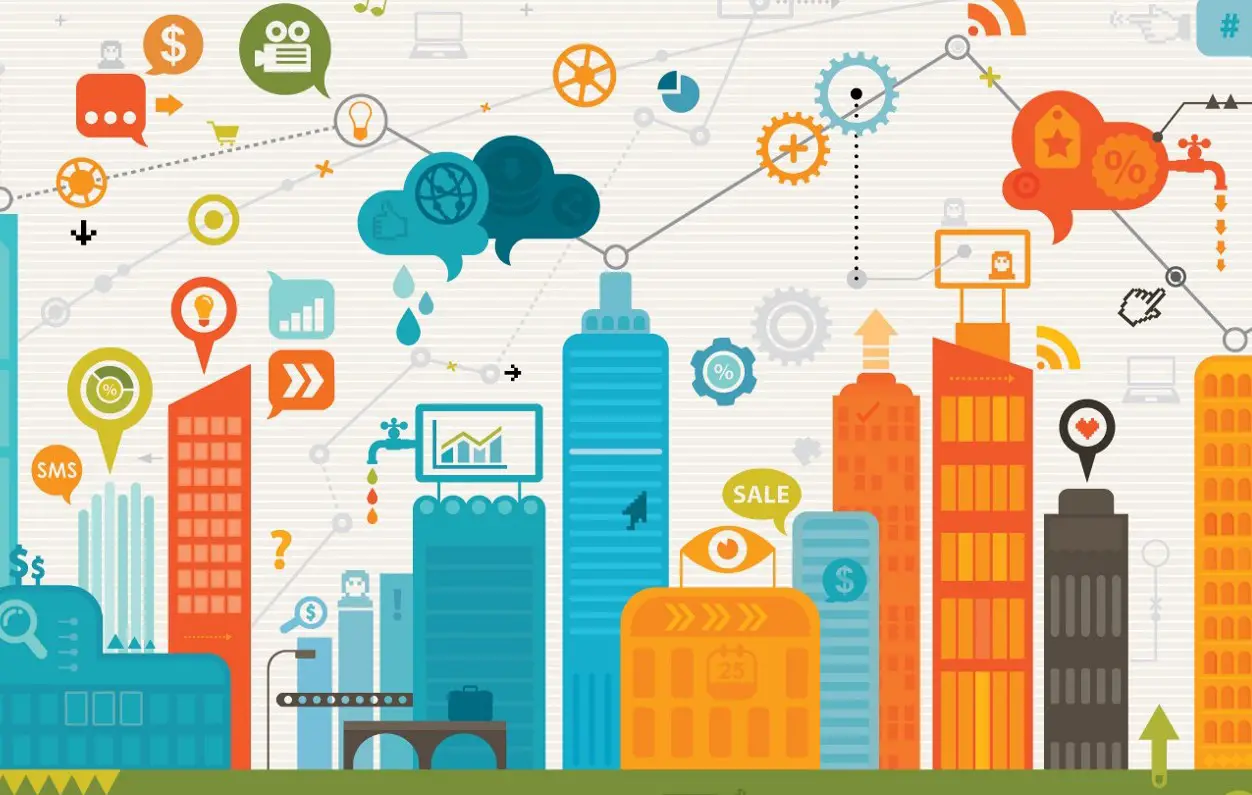The internet of things — or the use of the internet by everyday objects — has massive potential for changing the way we transmit information, though security issues surrounding the innovation have hampered its widespread use. The basic appeal of the internet of things, or IoT, is that it will make all your objects “smart,” in much the same way your cell phone is.
By imbuing other objects with the ability to access the internet, the invention opens the door for a number of other breakthroughs, all of which differ depending on their field. For instance, a smart refrigerator might reduce the amount of food waste a family commits, which could have an impact on the way grocery stores stock their shelves and farms grow their products. A smart washing machine, however, might optimize water usage and communicate that data to an area’s water source, which can improve regions’ environmental efficiency.
While the benefits might sound tempting enough, the nascent field has yet to discover a way to ensure that it can protect the data it creates and uses. Recent years have seen the misuse of data become a nationwide concern, but the issues have mostly been isolated to the internet of computers and smart phones. Imagine if every device in your house routinely connected to the internet and stored your data, though; as the number of internet-using appliances you use rises, so does the likelihood that your information could be stolen. As a result, IoT security has become a much-discussed issue of late.
Man Meets IoT
In addition to appliances, items like watches and glasses may also become a part of the internet of things. When accessories are made into smart objects, they are referred to as “wearables,” and their potential, in particular, has captured the interest of scientists. These items can serve a number of purposes, most of which involve capturing information about their wearers’ habits and creating useful insights from it.
Indeed, smart watches already record users’ basic health stats, such as their heart rate, miles walked and calories burned, and developers have high hopes for what they can accomplish with this field in the future. Certain educational products have even made strides in the field of emotion recognition, an exciting new arena that has led to a host of heretofore unimagined ethical concerns.
IoT the Superpower
Wearables might even have uses that were unimaginable several years ago, which adds to the excitement surrounding the field. For instance, with Google Glass, firefighters are using IoT-enabled glasses to receive information immediately about a burning building they need to enter.
Other inventions have professionals in the medical field intrigued. Developers have designed gloves, for example, that provide haptic feedback to the wearer’s muscles, which can be used for everything from learning the piano more quickly to recovering from a surgery in less time. As the technology continues to evolve, its uses within the medical field may prove to be some of its most revolutionary applications.
Safety Concerns
Vint Cerf, a vice president at Google and the so-called father of the internet, is one of many figures who has expressed concern regarding the internet of things’ ability to operate without being compromised.
In just the last few years, hackers have taken advantage of internet users’ data in almost every imaginable field, from credit card information to bank codes and social media preferences. Many of the smartest computer technicians are working full-time simply to keep the internet of computers and phones secure, so flooding the net-sphere with dozens, if not hundreds, more internet-enabled devices only compounds the difficulty of protecting user information.
The Internet of Things + Education
The education field is also incredibly interested in taking advantage of the internet of things. From improving infrastructure, such as school buildings and classroom design, to streamlining the teaching process, advancements in the field might change the face of education.
As IoT facilitates the flow of massive amounts of information across dozens of fields, the limitations of time and geography will become things of the past. It will also make it simple to get educational assistance, in whatever capacity necessary. For example, if you have to write a quality essay you lack the qualifications to write, you can look for online essay services, such as Coolessay. After all, writing services are just one of many phenomena that have arisen from the widespread influence of the internet on education. Indeed, in time, the internet of things is going to completely change what education looks like.









AZ Clinic Healthcare Houston specializes in various health services and wellness treatments. Based on the details provided on their website, here’s a general overview of what they might offer. Primary Care: Comprehensive health services for routine check-ups, management of chronic conditions, and overall health monitoring. Urgent Care: Immediate care for non-life-threatening conditions that require prompt attention. Preventive Care: Services aimed at preventing diseases and maintaining health through regular screenings, vaccinations, and lifestyle advice. Specialized Services: They might offer specialized treatments depending on the clinic’s focus, which could include services like weight management, hormone therapy, or pain management. Telemedicine: Online consultations for convenience and accessibility.